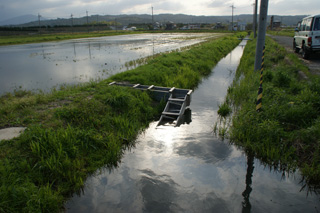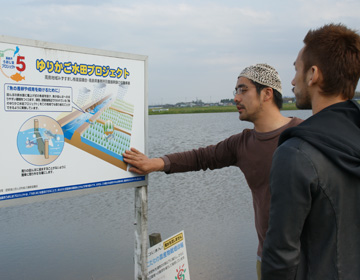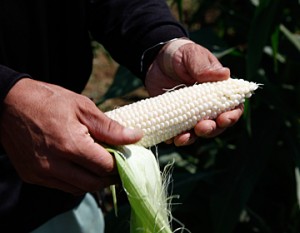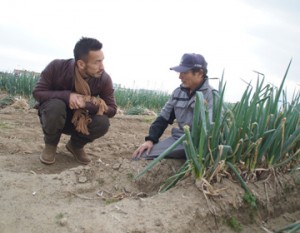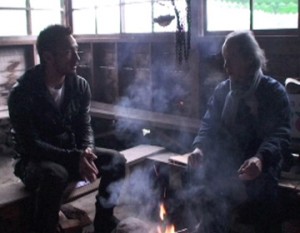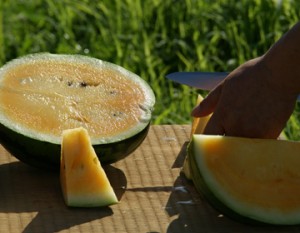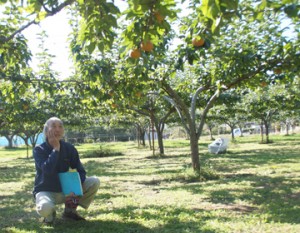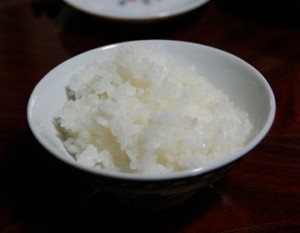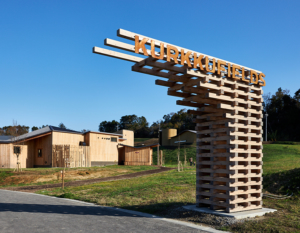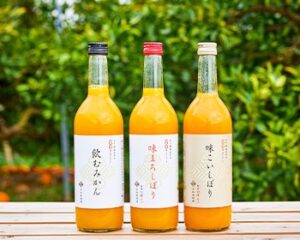Town with blessings of water
Tomatoes and cucumbers kept in cool water from the natural springs. You pick it up and take a big bite. The cool vegetable conveys the refreshing coolness. The natural spring water is for drinking and the water collected in the tank can be used to refrigerate or for laundering clothes. This is the ”Kabata system” used by more than 100 households in the Harie district. Harie district is also called the ”Shozu no Sato” – home to the natural waters. It is a town that exists with water.
Rice cultivation connects food and agriculture to tomorrow
Here at ”Shozu no Sato”, ”Harie Nonki Farm” grows rice. Their catchphrase is ”to link food and agriculture to tomorrow”. By these words, they consider safety first, and all their products are cultivated without chemical fertilizers and only a small amount of pesticide.
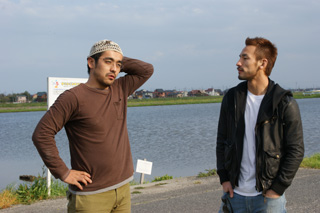
Rice fields where everything co-exists
22 years ago, one of his rice consumers told him, ”We as consumers obviously want to eat safe food, but pesticides harm the producers the most, don’t they?” He was impressed with the consumer’s concern, and the words triggered him to seriously consider the use of pesticides. There were problems in the beginning. Harvest decreased while workload increased. They were also accused of spreading insects. Still, they continued their research and have succeeded in obtaining certification as JAS Organic Food to establish pesticide-free agriculture. Safety for food is a long talked about theme, but safe food should be safe for both the consumer and the producers, as well as for the insects in the rice fields. Co-existing rice fields, that is what Nonki Farm is about.
